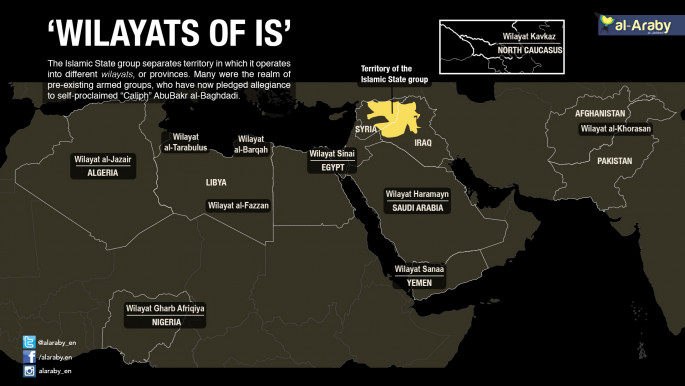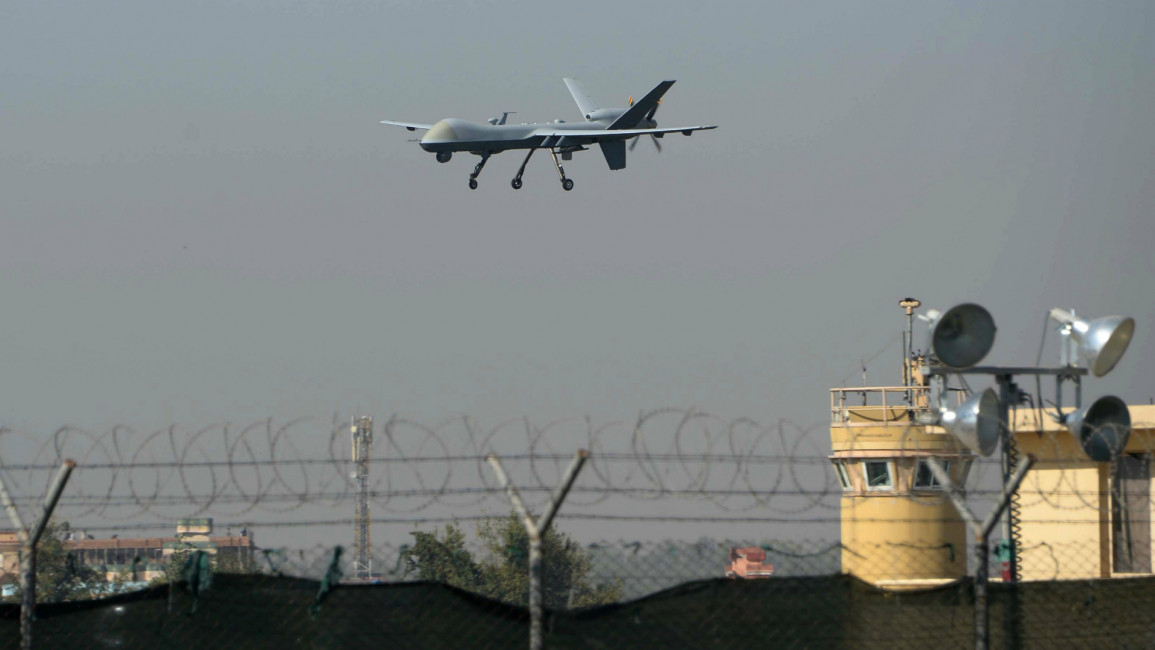IS 'Khorasan' commander killed in drone strike
The Islamic State group's top commander in Afghanistan and Pakistan was killed in a US drone strike on Thursday night, Afghan officials have revealed.
Hafiz Saeed Khan and at least 11 others were killed in a missile attack by a remotely piloted aircraft in Achin, a district in Afghanistan's Nangarhar province, they said.
US military officials in Kabul confirmed the attack on Thursday, but said they were unable to determine if Khan was among the casualties.
However, Kabul is determined that Khan, the IS "governor of Khorasan" was killed in the strike.
A year ago, in January 2015, IS designated areas of Afghanistan, Pakistan and parts of the surrounding countries as the lands of "Khorasan" - a geographic term from the earliest days of Islam which referred to the eastern parts of the first Caliphates.
The US Department of State had announced the designation of "ISIL-K" [Islamic State of Iraq and the Levant - Khorasan] as a Foreign Terrorist Organisation (FTO) just hours before its aircraft targeted the group's leaders.
The designation is thought to provide legal cover - at least under US law - for the Pentagon to use its military strength to strike at members of banned groups, irrespective of which country they are in.
"The consequences of the FTO designation include a prohibition against knowingly providing, or attempting or conspiring to provide, material support or resources to this organisation," a statement on the US Department of State website said.
 |
ISIL-K has carried out suicide bombings, small arms attacks and kidnappings in eastern Afghanistan - US Department of State |
 |
The statement adds that senior leaders of "ISIL-K" had pledged allegiance to IS leader Abu Bakr al-Baghdadi, and the pledge had been accepted in late January 2015.
"Since then, ISIL-K has carried out suicide bombings, small arms attacks and kidnappings in eastern Afghanistan against civilians and Afghan National Security and Defence Forces," read the State Department's statement.
Before January 2015, Hafiz Saeed Khan, also known as Mulla Saeed Orakzai, was a Taliban warlord.
He was reportedly killed in a drone strike in July 2015, but IS rejected the claims.
IS has not yet commented on the Thursday strike, which came after IS-Khorasan attacked Pakistan's consulate in Jalalabad on Wednesday, killing seven Afghan security officers.
The group said that three of their fighters, including a suicide bomber, took part in that operation. They claimed to have killed several diplomatic staff, but Afghan officials said that the three militants were killed along with seven members of the consulate's security forces, while none of the staff inside the consulate were harmed.
According to Reuters, Attaullah Khogyani, a spokesman for the provincial governor, said a suicide bomber had tried to join a queue of people seeking visas to Pakistan and blew himself up after being prevented from entering the building.
 |



